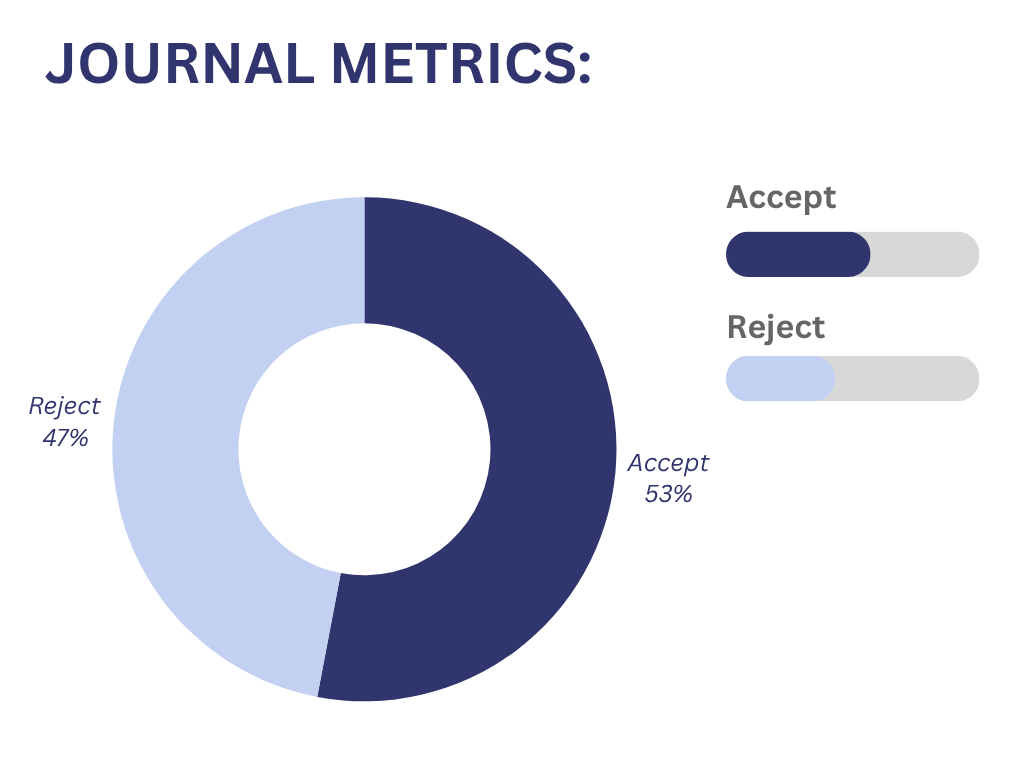The Impacts of Covid-19 on Postgraduate Courses at the Federal University of Ceará (UFC, Brazil)
Abstract
With the aim of identifying the impact of the Covid-19 pandemic on postgraduate courses (stricto sensu) at the Federal University of Ceará (UFC), the Data Envelopment Analysis (DEA) multi-criteria methodology was adopted, using the BCC modeling oriented to the outputs (BCC-O), proposed by Banker et al. [1]. This methodology was used to carry out a longitudinal analysis of the period leading up to the pandemic (2018 and 2019) and the pandemic period (2020 and 2021). An ex-ante and ex-post-facto study was carried out, taking postgraduate courses as the scenario, specifically the academic and professional master's courses at the UFC. One could see that although the Covid-19 pandemic had an impact on the performance of this university's master's courses, in general, their relative efficiency did not fall so significantly, as it varied from an efficiency score of 0.808 in 2018 and 0.8009 in 2019, to 0.7685 in 2020 and 0.7401 in 2021. In addition, some master's courses succeeded in maintaining their relative efficiency, remaining as efficient units (score 01) over the four years, while others, such as the Master's in Public Policy Evaluation - Professional, and the Master's in Public Policies and Management of Higher Education-Professional (POLEDUC), boosted their indexes. One concludes that the DEA methodology, besides identifying the best practices during the pandemic period, can guide managers in monitoring the courses portrayed as inefficient.
Keywords:
Covid-19 pandemic, Data envelopment analysis, Postgraduate studiesReferences
- [1] Banker, R. D., Charnes, A., & Cooper, W. W. (1984). Some models for estimating technical and scale inefficiencies in data envelopment analysis. Management science, 30(9), 1078–1092.
- [2] Castro, M. C., Kim, S., Barberia, L., Ribeiro, A. F., Gurzenda, S., Ribeiro, K. B., … Singer, B. H. (2021). Spatiotemporal pattern of COVID-19 spread in Brazil. Science, 372(6544), 821–826.
- [3] Cavalcanti, L. M. R., & Guerra, M. das G. G. V. (2022). The challenges of the public university in the Covid-19 post-pandemic: The Brazilian case. Essay: evaluation and public policies in education, 30(114), 73–93.
- [4] Rodrigues, B. B., Cardoso, R. R. de J., Peres, C. H. R., & Marques, F. F. (2020). Learning from the unpredictable: College students’ mental health and medical education in the Covid-19 pandemic. Brazilian journal of medical education, 44. https://www.scielo.br/j/rbem/a/kN9b4V5MJQtvygzTNBWsSZS/abstract/?lang=en
- [5] Gemelli, C. E., & Cerdeira, L. (2020). Covid-19: impactos e desafios para a educação superior brasileira e portuguesa. Janelas da pandemia, 115–124.
- [6] Andriola, W. B. (2009). Modern psychometry: characteristics and trends. Est. aval. educ, 319–340. http://educa.fcc.org.br scielo.phppid=S0103-68312009000200011&script=sci_abstract&tlng=en
- [7] Edalatpanah, S. A. (2020). Data envelopment analysis based on triangular neutrosophic numbers. CAAI transactions on intelligence technology, 5(2), 94–98.
- [8] Andriola, W. B. (2004). Institutional assessment at the Federal University of Ceará (UFC): organization of data system and institutional quality indicators. Assessment: journal of higher education assessment, 9(4). https://periodicos.uniso.br/avaliacao/article/download/1286/1277
- [9] Souza Júnior, C. V. N. de, & Gasparini, C. E. (2006). Analysis of equity and efficiency of states in the context of Brazilian fiscal federalism. Estudos econômicos (são paulo), 36, 803–832.
- [10] Farrell, M. J. (1957). The measurement of productive efficiency. Journal of the royal statistical society series A: statistics in society, 120(3), 253–281.
- [11] Charnes, A., Cooper, W. W., & Rhodes, E. (1978). Measuring the efficiency of decision making units. European journal of operational research, 2(6), 429–444.
- [12] Koopman, B. O. (1951). A law of small numbers in Markoff chains. Transactions of the american mathematical society, 70(2), 277–290.
- [13] Muñiz, C. (2020). Media system dependency and change in risk perception during the COVID-19 pandemic. Blanquerna school of communication and international relations, 1(47), 11–26.
- [14] Muniz, E. C. L., Dandolini, G. A., Biz, A. A., & Ribeiro, A. C. (2021). Customer knowledge management and smart tourism destinations: a framework for the smart management of the tourist experience--SMARTUR. Journal of knowledge management, 25(5), 1336–1361.
- [15] Debreu, G. (1952). A social equilibrium existence theorem. Proceedings of the national academy of sciences, 38(10), 886–893.
- [16] Cavalcante, S. M., & Andriola, W. B. (2012). Evaluating the efficiency of undergraduate courses at the Federal University of Ceará (UFC) through Data Envelopment Analysis (DEA). Iberoamerican journal of educational evaluation, 5(3), 291–314.
- [17] Peña, C. R. (2008). A model for evaluating the efficiency of public administration using the data envelopment analysis (DEA) method. Contemporary administration magazine, 12, 83–106.
- [18] Cavalcante, S., Kesting, P., & Ulhøi, J. (2011). Business model dynamics and innovation:(re) establishing the missing linkages. Management decision, 49(8), 1327–1342.
- [19] Muniz, R. D. F., Andriola, W. B., Muniz, S. M., & Thomaz, A. C. F. (2022). Employment of Data Envelopment Analysis (DEA) to estimate school efficiency. Essay: evaluation and public policies in education, 30(114), 116-140.
- [20] Maghbouli, M., & Moradi, F. (2021). The relation between emotional intelligence (EQ) and mathematics performance: a DEA-based approach. Journal of applied research on industrial engineering, 8(Spec. Issue), 1–14.
- [21] Nunamaker, T. R. (1985). Using data envelopment analysis to measure the efficiency of non-profit organizations: A critical evaluation. Managerial and decision economics, 6(1), 50–58.



